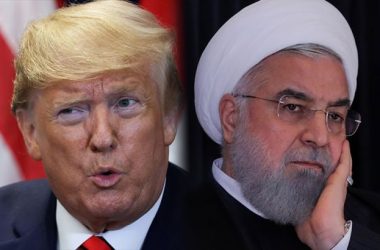
(JollofNews) – At present, it would be unimaginable for any Gambia Government officials operating under the orders of their bosses to lawlessly close or burn newspaper offices or radio station, as was the case under previous regime of Yahya Jammeh. Instead, the Tax Offices in this contemporary era serve other purposes such as to shut down media house under the guise of enforcing the law for reported failures to pay tax.
If a man is accused of a crime, do you hang him and wait for the judicial system to sort out whether he, did it? The question seems farcical, but that’s the situation facing the Gambia’s daily paper, the Daily Observer. How much tax arrears the paper owes? Was there any judicial review and notice to the proprietors?
The Gambian Government closure of the Daily Observer newspaper is a disturbing development clearly designed to silence critical media voices. The shutting down of one of the Gambia’s main independent newspapers is an affront to media freedom and the authorities should immediately reverse their decision.
The way the Gambia Revenue Authority acted against the Daily Observer newspaper could justify arguments that the closure of the action is not only in bad faith but also politically motivated.
The Daily Observer Newspaper grew into one of the best Gambian brands and diversified into courier and information services.
Previous regimes targeted the Daily Observer newspaper with closure but it refused to die.
It is my opinion that Gambia Revenue Authority’s action has been politically influenced as there are a lot of companies that owe the Gambia Revenue Authority huge sums of money but can operate. I am also surprised with the speed at which the Revenue Authority processed the case as it has thousands of cases awaiting to be processed.
The closure of a business is an economical disaster as families and other businesses that depended on it experience difficulties of varying magnitude. The closure of the Daily Observer newspaper is not about Yahya Jammeh, Amadou Samba or Baba Jobe. Think about the few workers employed as editors, journalists, security guards, garden boys… And more deeply and emotionally, think about the street vendors who depend on 10 Dalasi per day they make from newspaper sales. All these will be denied money for rent, food, school fees. This is political miscalculation. Like shooting your own leg.
Everyone is aware that Newspaper business all over the world has been affected by electronic media and changes in the way people are informed. The closure of the Daily Observer also provides lessons for media, politics, law and business.
As a former proprietor, the Independent and a victim of arbitrary closure I am urging the Gambia Government to work with the Gambian Revenue Authority and the Daily Observer to find a way forward that allows Daily Observer to reopen immediately.
And I am appealing to the Government to reconsider the decision to close the Daily Observer Newspapers and avoid throwing hundreds of workers into unemployment thereby adversely affecting the welfare of their families.
While it is a matter of human rights law that the state is entitled to enforce laws as it deems necessary to secure the payment of taxes or other contributions, there should be further room for negotiations to find an amicable solution to meeting the tax obligation of the Daily Observer newspapers without necessarily closing it.
There is also a need to use negotiations, mediation and conciliation methods rather than exclusively using a legalistic approach in this matter. At the same time the collection of domestic revenues through corporate taxes is the responsibility of government and it is the responsibility of corporate bodies, including media houses to meet their tax obligations. I hope that the concerned parties will take steps to find an amicable solution to this issue.
The Daily Observer has particularly been instrumental in promoting the right to freedom of expression of divergent viewpoints, providing checks and balances to various State and Non-State institutions and individuals as well as in promoting transparency and accountability. The right to freedom of the media, freedom of expression and freedom of assembly are particularly important. The ability to debate different views, policies and activities in an impartial conducive environment supports the electorates ‘capacity to make informed decisions.
It would be a sad chapter in the development of Gambia’s democracy if a drastic action taken to close the Daily Observer newspaper is not reversed.
By Alagi Yorro Jallow
The author is founder and former managing editor of The Independent, the Gambia’s only private newspaper before it was banned by the government in 2005. He was a Reagan-Fascell Democracy Fellow at the National Endowment for Democracy, a 2007 Nieman fellow and is the author of Delayed Democracy: How Press Freedom Collapsed in Gambia published in 2013.






This statement by Mr Jallow is not what we wanted to read; But in reality the Barrow government are using all and every method to close down so many businesses that are what are termed as “Going Concerns” In that they contribute to national income, provide valuable jobs and incomes and training and support long term careers. The uncertainty for all those who rely on these small incomes to feed and house Gambian families cannot be understated.
With inflation running rampant and business trade being increasingly scarce, we are yet to see any growth or jobs created by the Coalition government, to alleviate the suffering of impoverished Gambian families. This government gives out too many negative signals/ as if they are hell bent on destruction and not reconstruction and reconciliation.
I cannot believe that Demba Jawo{ of all people } would be at all comfortable to see The Daily Observer’s closure.
So who is next ?
Gambia government- Millions Owed to Grts Should Be Paid!
Bekai Njie And Aji Fatou Faal
A 2013 report of the Joint Session
A 2013 report of the Joint Session of the Public Accounts and Public Enterprises Committees (PAC/PEC) of the National Assembly has strongly recommended for the various government ministries and other bodies to pay their arrears owed to The Gambian Radio and Television Services (GRTS), which amounts to millions of dalasis.
The report, which was adopted by members Monday during the second sitting of the Assembly in the 2014 Legislative Year, disclosed that a staggering amount of D19, 784, 974.00. is currently owed to the national broadcaster, thus making GRTS “partially ineffective” in the execution of its mandate (May13 2014, Daily Observer).
Netty Dread this is your response.Government owed GRTS almost 20 million dalasis and Daily Observer 7 million dalasis.Netty I was in the fore-front fighting dictatorship since 1994 and loss everything.My newspaper was arbitrarily closed “The Independent”.Let them negotiate,reconcile and settle the arrears.
You should have been in a position to distinguish between what is done arbitrarily and what is done following the due process of the law. Even if your Serer Granny was killed by a big giant ‘Ndoben’, it dos not mean that whenever you see anything black you shout ‘Ndobeeeeeeeeen’.
Close it as they have been one sided for years. While the point newspaper was getting burnt and the staff getting shot the observer has enjoyed no disturbances. CLOSE IT
Daily Observer should blame themselves. You have to pay taxes because it is from taxes that the policemen,the army, school teachers just to name a few get their salaries .So big news power house such as the daily observer contributes a large portion to the national revenue. If paper was close for another reason then the government get blame.Pay your tax and close the deal
One solution: If the owner cannot be identified: The Government should post an add in the Standard Newspaper giving 30 days for the owner to come forward: If the owner does not come forward, then the government should allow The Observer to go public and offer shares: The money raised could offset the tax due and The Observer would be subject to the scrutiny of its shareholders; A totally democratic way to proceed.
Just a suggestion from a successful businessman.
There is one thing you are all missing. This has nothing to do with the Central Government. This is about taxes owed to GRA, an autonomous body. Neither GRA no central government have the mandate to seize and privatize the company. Only what the law allows should be done. Locking them up, taking them to court etc.
It is a tax problem inherited. It does show how the Jammeh regime operated for its own purpose and not for the people; or its tax obligations; or even leadership.
We must never forget the culture of impunity and favouritism and fear;
Let us pray the New Government has a defined plan which is sometimes open to debate.